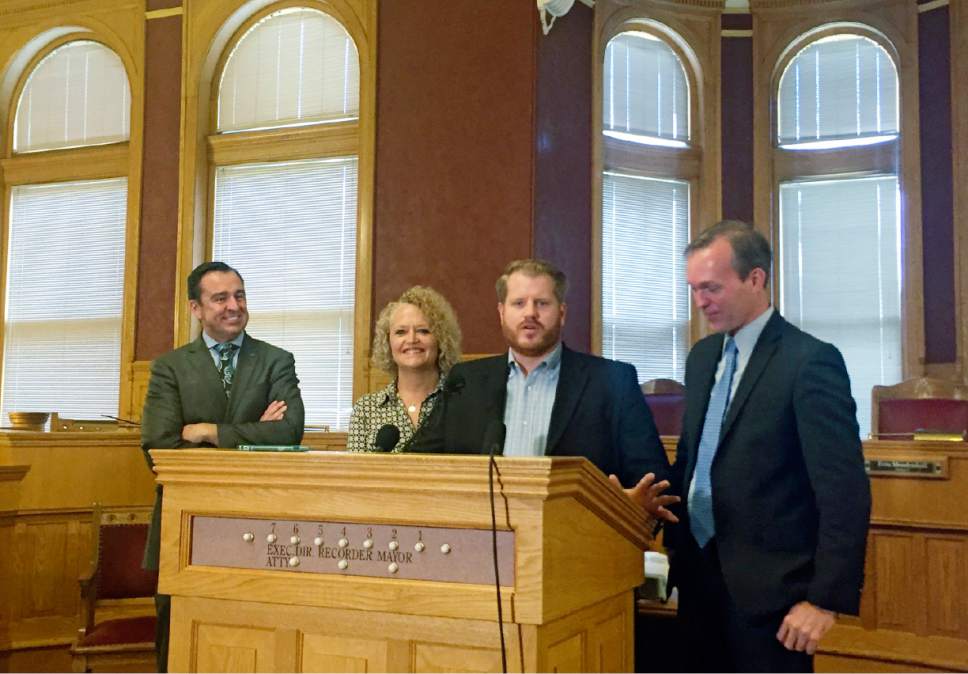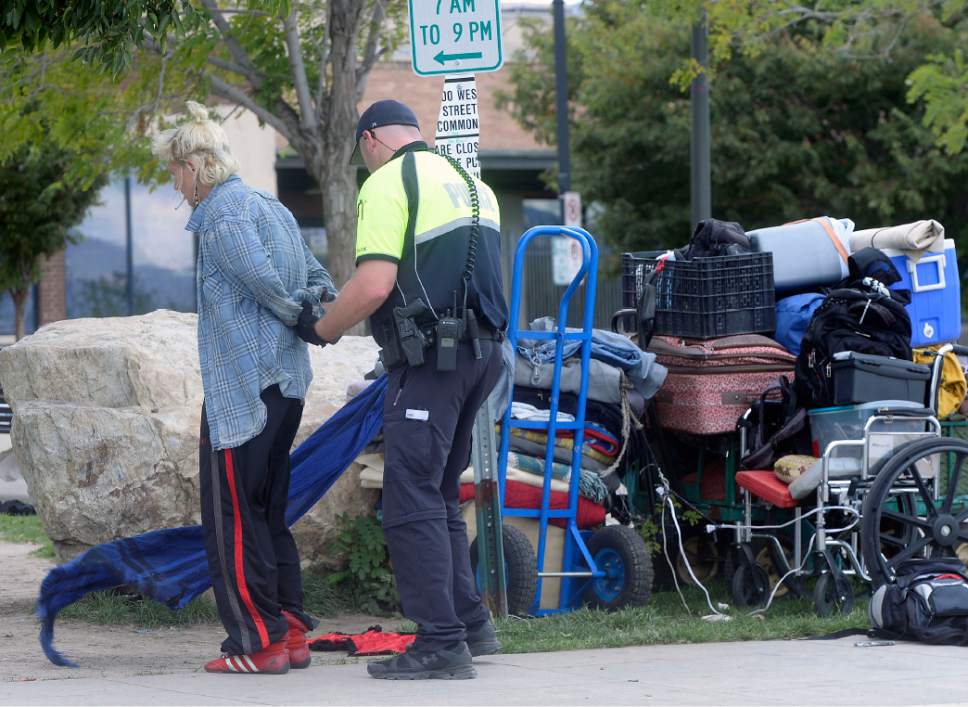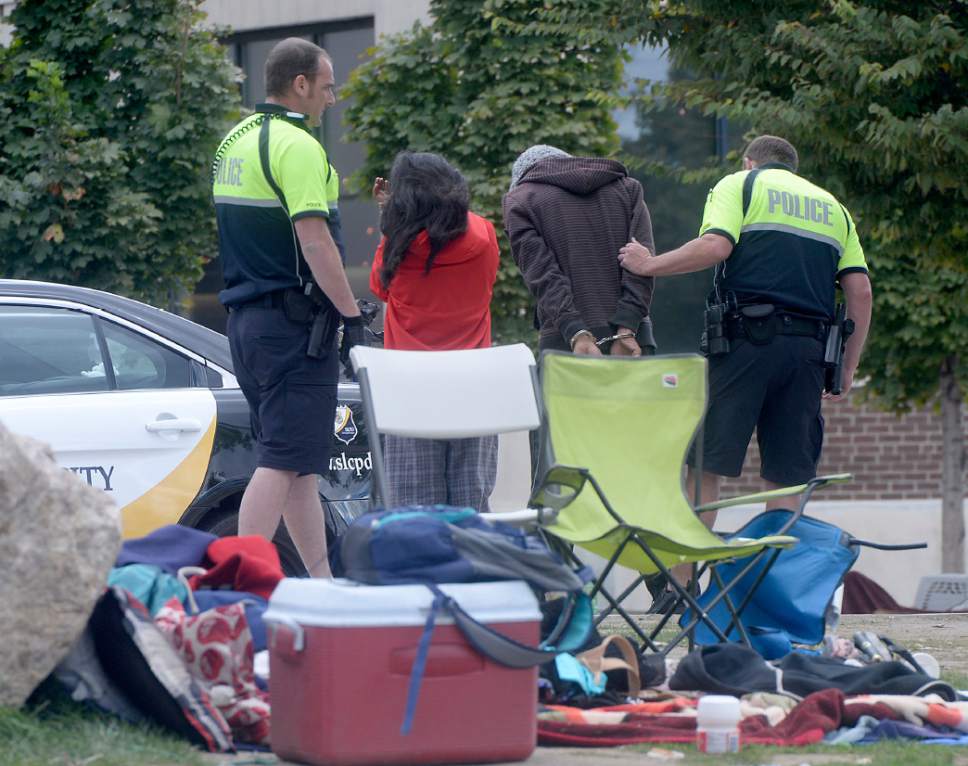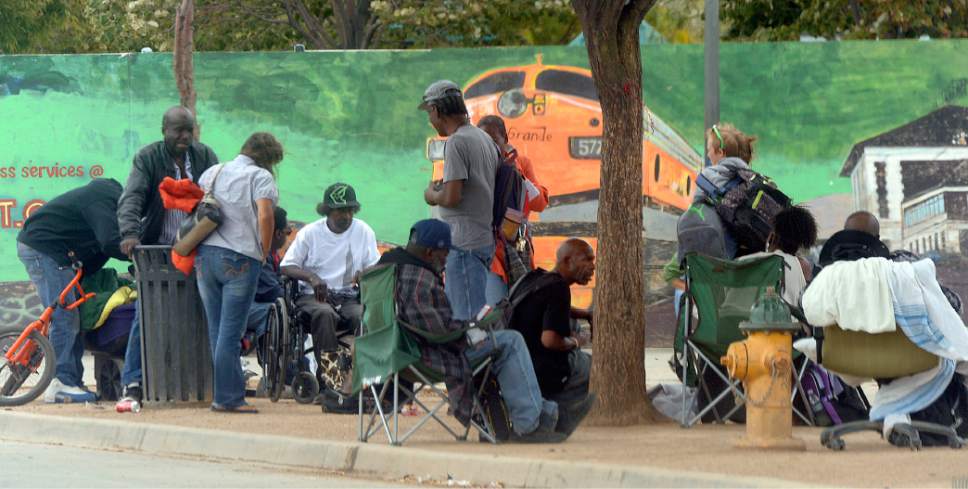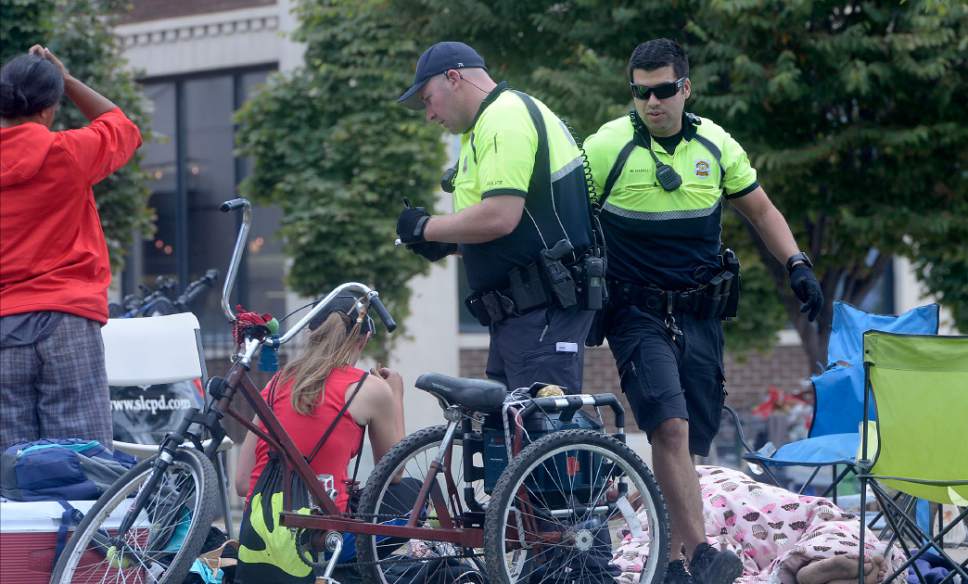This is an archived article that was published on sltrib.com in 2016, and information in the article may be outdated. It is provided only for personal research purposes and may not be reprinted.
Nudged along by Utah House Speaker Greg Hughes, Salt Lake City Mayor Jackie Biskupski and the City Council ended an increasingly bitter stalemate Friday over the size and number of new homeless shelters to be built in the coming years.
Instead of constructing two new resource centers with 250 beds each as the mayor wanted, city leaders agreed to build four shelters with no more than 150 beds each.
They cut the deal the day after a coordinated crackdown on drug dealing around the Rio Grande area of downtown Salt Lake City, which all parties agree has become a crisis. The neighborhood is home to the 900-bed Road Home shelter, along with other service providers for the homeless.
Overall, the new shelters will have a total of 550 total beds and one center will be dedicated to helping single women. It's unclear when the mayor and the council will pick the sites, but they are expected to have it wrapped up before the state Legislature meets in January.
The smaller size will increase the price tag but is intended to mollify residents and council members who worry that bigger centers would overwhelm the areas where they eventually are located.
"As long as we are picking these sites together and standing united, I can do four," Biskupski said. "We are working together and I like that."
But this compromise wasn't easy to reach, largely because of tension between the new mayor and the council.
Hughes, frustrated by the lack of action, made it clear if city leaders dragged their feet, the state would interject itself more forcefully into the issue. The Legislature allocated $9 million for the project this year and is slated to give an additional $18 million during the next two years.
"I wasn't willing to see the state withdraw from this effort," the Draper Republican said, "so the state was either going to take a stronger role or we were going to do all we could to work with them."
To ramp up pressure even more, the City Council called a news conference at 9 a.m., and by that time the negotiations hadn't even reach the halfway point.
Reporters milled around City Hall for two hours as talks among Hughes, Salt Lake County Mayor Ben McAdams, City Council members and aides to Biskupski churned. Biskupski didn't participate until the final moments, after a staffer literally ran documents back and forth down the hallway between the group and her office.
When they emerged, they said they made progress and are united.
"Collaboration is never easy and finding consensus takes time, and you witnessed firsthand some of that today," McAdams said. "But we have come together around a recommendation that we believe meets all of those priorities and perspectives that we each bring to the table."
The city also committed $4 million to affordable housing over an undetermined period of time described only as "long term."
"As a city, we should be proud that we are engaged in a rigorous conversation," Biskupski said, "not on if we will help those who most need our assistance, but how we will help those in our community."
The mayor said her team is in the process of buying options on parcels and in consultation with the council will release a list of potential locations in the coming weeks. The public would then have a chance to weigh in on the sites, which City Council Chairman James Rogers estimated could be between six and 10, before a final decision is made.
City and county leaders will be looking for private donations to help pay for the four new shelters.
The goal is to ease the pressure on The Road Home shelter and the larger Rio Grande neighborhood, where there's been a rise in violence due to the drug trade.
Hughes, McAdams and Biskupski were joined by law-enforcement leaders Thursday in announcing "Operation Diversion," an attempt to reduce crime in the area by picking up drug users and dealers, jailing the most serious offenders and giving the rest an option for immediate drug treatment.
In its first blitz, police picked up 49 people, and 30 elected to go into inpatient-treatment facilities. But 10 of those have since walked away and will face criminal charges.
Biskupski said there will be more raids in the next six months of this experiment.
The group is also working on a plan to help the homeless who have created a tent city in the area during the winter.


